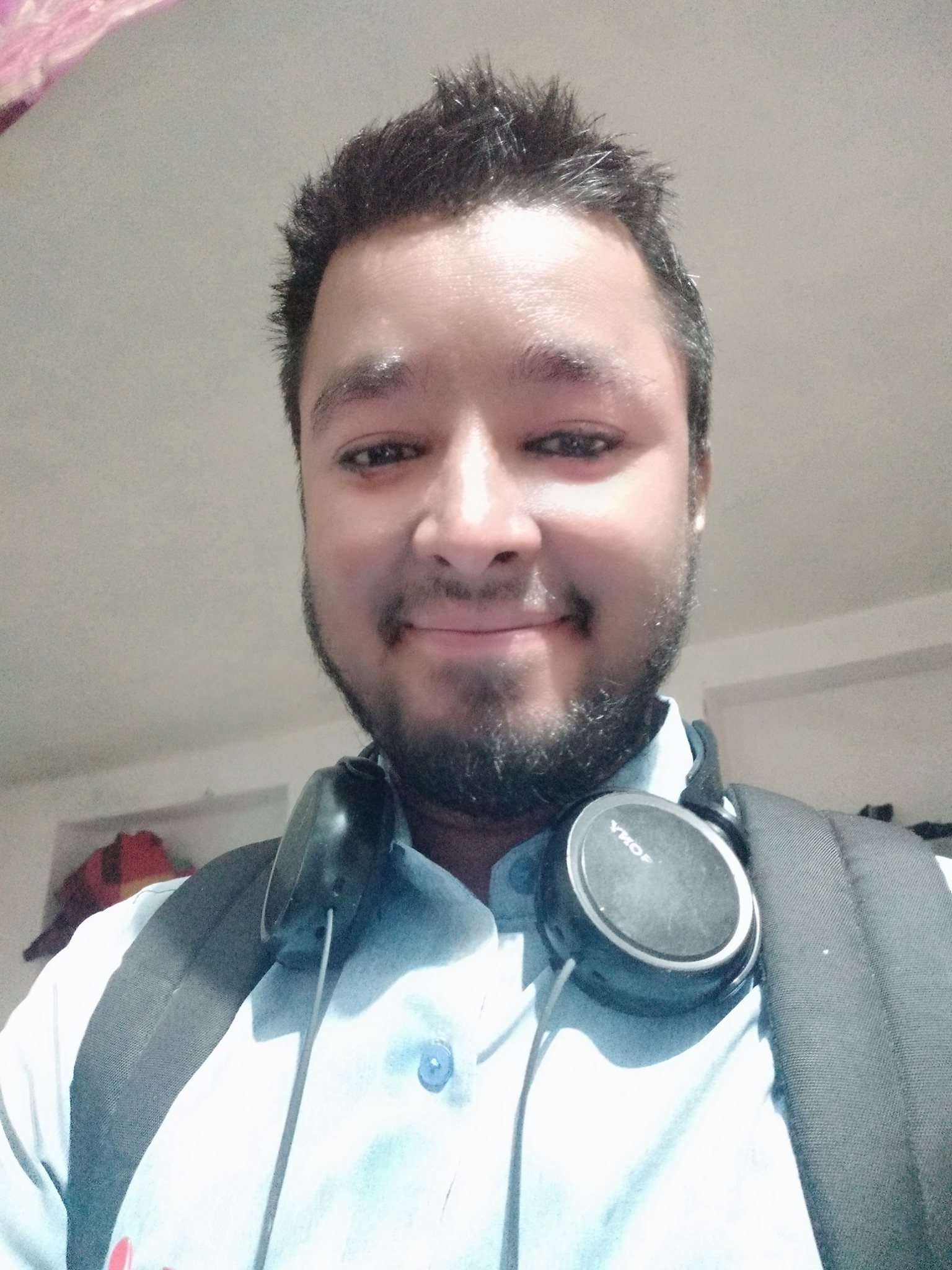CHAMP: Community Health Antimicrobial Resistance Platform
CHAMP by Khushi Baby is an antimicrobial stewardship monitoring tool that guides prescriptions, monitors adherence, and educates on antibiotic use, directly at the community level, empowering health workers and improving patient outcomes against AMR.
Pranav Savanur, Partnerships and Strategy Lead
- Innovation
- Integration
- Implementation
AMR has emerged as a key challenge with India being identified as the epicenter of the global AMR crisis (Broom & Doron, 2020). The AMR burden in both urban and rural settings challenges the notion that AMR is predominantly a hospital-acquired issue, pointing towards a widespread community-level problem.
This revelation aligns with identified drivers of AMR in India: antibiotic misuse and overprescription fueled by diagnostic uncertainties, a lack of awareness, insufficient surveillance and health workforce capacity, and over-the-counter sales. The primary healthcare system’s struggles, including resource constraints and variable provider training, exacerbate the inability to effectively manage and mitigate AMR, leading to increased medical costs and mortality.
Without a clear understanding of the prevalence and burden, a glaring gap exists in the collection and analysis of community-level AMR data across India. Addressing this gap requires equipping healthcare providers with tools for real-time data collection on prescription patterns and antibiotic adherence, alongside culturally sensitive community outreach for counseling on antibiotic use.
To bridge this gap, there’s an urgent need to capture and leverage high-quality community level AMR data through precise analytics and targeted interventions. This approach necessitates a whole-of-system strategy, moving beyond siloed interventions to combat the growing AMR threat effectively.
Our solution, CHIP, has been developed to digitally empower CHWs, healthcare providers, health officials, and governments, ultimately serving citizens at the community level. It enhances healthcare delivery, improves access to quality medical advice, and reduces AMR incidence-thereby aiming to diminish long hospital stays, lower out-of-pocket expenditures, and decrease mortality. Over 200,000 hours have been invested in co-designing CHIP with CHWs, adhering to government guidelines and human-centered design principles. Co-development of CHIP has been enriched with user interviews, feasibility studies, and continuous feedback over a decade from users and government program directors.
Importantly, CHIP facilitates public-private partnerships by integrating data from private hospitals. Through reverse geocoding, patient data from private hospitals are integrated with community level data and national health programs on CHIP, transforming into a comprehensive village map, enabling health officials to pinpoint AMR hotspots, assess antibiotic use patterns, and identify areas for intervention. This approach not only demonstrates our commitment to leveraging technology for public health but also enhances collaboration across sectors to effectively tackle AMR challenges.
- Pilot: A project, initiative, venture, or organisation deploying its research, product, service, or business/policy model in at least one context or community
- Artificial Intelligence / Machine Learning
- Big Data
- GIS and Geospatial Technology
- Software and Mobile Applications
Key aspects of our contribution include:
Free Access to Government: We offer our technology and implementation solutions, including CHIP modules, to governments free of charge. This facilitates data-driven decision-making at scale, directly benefiting public health initiatives and outcomes.
Open Source AI Algorithms: Developed in collaboration with Google AI, our algorithms for predicting health worker performance and forecasting health outcomes are open-sourced. This allows for global accessibility and innovation, encouraging other entities to adapt and improve upon our work for widespread public benefit.
Accessible Data for Decision Making: The data collected through CHIP modules has been adopted by the government, serving as a foundational asset for informed public health strategies and policies.
Knowledge Sharing: We deploy the CHIP dashboard’s A/B testing tool to conduct studies, the findings of which are shared in peer-reviewed publications. These insights into the challenges faced at the community level and our key lessons learned are invaluable resources for the global health community.
Dissemination Workshops: We host workshops targeting government officials, reporters, scientists, and researchers to disseminate key impact metrics and our intervention insights. These sessions foster transparency, allowing us to share challenges and successes, thus contributing to the collective knowledge pool on tackling AMR effectively.
CHIP creates tangible impacts by focusing on high-quality data collection and analytics to combat AMR with a dual approach.
Data collection: This process involves deploying CHWs already equipped with CHIP for targeted data collection on antibacterial medication patterns and introducing an AMR module into an existing workflow at Health and Wellness Centers (HWCs) for community-level screenings.
Data analysis:
Activities:
Deploying AI-powered CDSS for informed antibiotic prescribing.
Real-time prescription and adherence monitoring.
Culturally sensitive community outreach on proper antibiotic use.
Integrating community and HWCs (PHCs) health data for comprehensive analysis.
Outputs:
Increased prescription accuracy.
Increased adherence to antibiotic courses among patients
Improved AMR awareness and antibiotic stewardship in community
Improved data-quality providing insights into AMR pattern
Outcomes:
Reduced AMR spread.
Decreased drug-resistant infections and healthcare costs.
Strengthened health system resilience against AMR.
Enhanced community health through decreased AMR burden.
This structured approach, supported by initial data collection, lays a foundation for CHIP's effectiveness. By focusing on vulnerable populations and data analysis, we anticipate substantial improvements in antibiotic use and a significant reduction in AMR rates, supported by evidence from WHO reports and stewardship program studies.
Our three-year plan aims for a transformative impact across three states, reaching over 100 million people. We’ll integrate and review feedback quarterly for optimal impact.
Year 1 (Q1-Q2):
Rajasthan: Initiate an AMR pilot in Udaipur district to integrate the newly developed AMR module within CHIP, setting expansion benchmarks.
Karnataka: Deploy CHIP’s AMR module in 3 HWCs, initiating AI for accurate AMR monitoring and comprehensive baseline data collection.
Year 1 (Q3-Q4):
Rajasthan Expansion: Scale CHIP to 10 districts in the Jaipur division, building on Udaipur's pilot and laying the foundation for statewide coverage.
Karnataka Integration: Expand CHIP’S AMR module to Grow CHIP to 100 more HWCs, to 100 additional HWCs, leveraging state government support and our demonstrated success.
Year 2:
Rajasthan: Aim for statewide AMR-module adoption, endorsed by district health officers’.
Karnataka: Integrate CHIP into another 1000 HWCs, utilizing the government’s backing and our proven execution strengths.
Year 3:
Maharashtra Pilot: Begin the AMR module pilot, following extensive preparation and implementation lessons learned. This phase aims to replicate the effective community-level and HWC-focused strategies seen in Rajasthan and Karnataka.
Full Scale: Achieve statewide coverage in Rajasthan and expand CHIP to 10,000 HWCs in Karnataka, enhancing AMR management efforts.
Our Monitoring and Evaluation (M&E) framework, addressing the critical gap of community-wide AMR data, succinctly integrates data collection and analysis to measure our solution's impact on AMR. Here’s how we're systematically tackling this challenge:
Data Collection:
Baseline AMR Profiles: Collect initial data on the prevalence of antibiotic-resistant infections and common pathogens, serving as future assessment benchmarks.
Antibiotic Prescription Patterns: Analysis of types of antibiotics prescribed, their indications, and adherence to guidelines, establishing a foundation for measuring intervention effects.
Awareness and Knowledge Levels: Initial surveys to assess community and healthcare workers' awareness about AMR and appropriate antibiotic use, setting a baseline for educational interventions.
Data Analysis:
Reduction in Inappropriate Antibiotic Prescriptions: Track a 15% decrease in unnecessary prescriptions within six months at HWCs, reflecting prescribing practice improvements.
Increased Treatment Adherence: Aim for a 10% improvement in antibiotic course completion rates, to assess the effectiveness of communication tools, CHW outreach and reminders.
CDSS Utilization: Monitor a 30% CDSS utilization increase within six months, aiming for 90% over two years, indicating decision-making integration and workforce capacity building.
Patient and Healthcare Worker Engagement: Evaluate impact of outreach and education through achieving an 80% satisfaction rate among users, based on initial and follow-up surveys.
- India
- India
Our approach to overcoming barriers focuses on:
Policy Barriers: Effective AMR management requires cross-departmental coordination within a one-health framework, often hindered by bureaucratic turnover and shifting priorities. Strategy: To navigate this, we're enhancing our policy and engagement teams at both state and central levels, improving advocacy for CHIP platform adoption in AMR control. We've hired a one-health consultant bridging ministry efforts with ours, fostering necessary inter-departmental coordination.
Talent Recruitment and Retention: Attracting skilled talent—academics, researchers, data scientists—to public health is challenging. Strategy: We're initiating hackathons and leveraging networks with organizations like PHFI for talent recommendation. Partnerships, such as our MoU with Yale University, establish flagship fellowship programs enhancing our appeal. Trinity Challenge's visibility boosts our profile, attracting global technical expertise previously unaware of or unengaged with our mission.
Sustained Financing: The competitive financing landscape in development and global health in India presents challenges to financial sustainability. Strategy: We aim to use evidence from our scale-up efforts to bolster government support for CHIP in AMR control, while we continue to raise funds through philanthropy and CSR. In Karnataka, we're exploring joint funding applications with multilateral organizations like the World Bank and Asian Development Bank, demonstrating CHIP's benefits to secure sustained financing.
- Nonprofit
The Trinity Challenge presents an unparalleled opportunity, directly addressing our key barriers:
Network Expansion: Our previous engagement with The Trinity Challenge facilitated valuable partnerships, notably with Jhpiego, expanding our network and collaboration potential. We anticipate further expanding our ecosystem of partners, engaging with organizations across health priorities and geographical boundaries.
Cross-sectoral Collaborations: We are keen to expand CHIP to address AMR in collaboration with the Ministry of Agriculture, emphasizing a comprehensive approach to AMR. Engaging with previous winners like PODD and others focused on disease forecasting can inspire new strategies, fostering cross-sectoral collaboration for a holistic AMR solution.
Organizational Capacity Building: Through workshops and interactions, including with partners like McGovern Foundation, we aim to enhance our organizational capabilities, learning from global best practices and innovative approaches in health technology.
Catalytic Funding and Exposure: The Trinity Challenge's support can catalyze our efforts, providing necessary funding and exposure to showcase CHIP's utility in health priorities, including AMR—a critical concern in India.
- Talent Acquisition: Attracting skilled talent is a challenge. The Trinity Challenge's network and visibility can elevate our profile, attracting global expertise in public health and data science, enhancing our analytical capabilities and innovation in digital health solutions for AMR.
We will be engaging in partnerships with with WHO (infectious disease surveillance), ICMR (AMR surveillance network), Audere (Rapid Diagnostic Testing machine learning algorithms), Institute of Health Metrics and Evaluation (Global AMR Burden Surveys), and Johns Hopkins Center for Digital Health Innovation.
From a fundraising perspective, we would further like to engage with Wellcome Trust, CHAI, and BMGF.
Global Partnerships and Strategy Lead

CEO

Chief Data Scientist, Technical Advisor, Academic Mentor

COO

Lead - Development